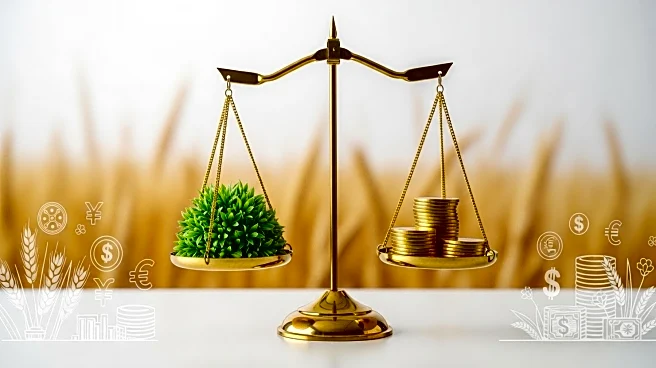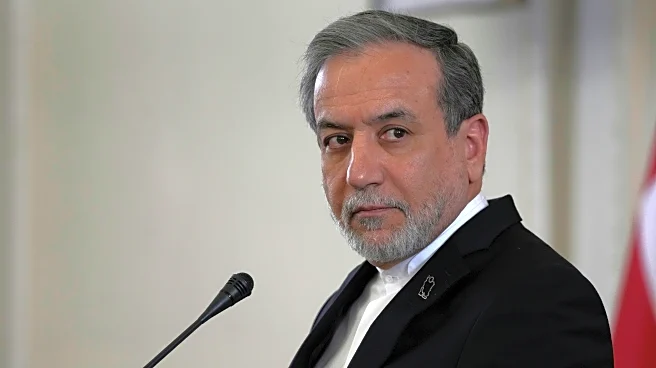What's Happening?
Bank lending to Nigeria's agricultural sector has increased to 5.33% of total credit as of May 2025, according to the Nigeria Incentive-Based Risk Sharing System for Agricultural Lending (NIRSAL). This marks a reversal of a multi-year decline, with agriculture's share of lending previously falling from 6.18% in 2022 to 4.82% in 2024. NIRSAL has facilitated over N70 billion in commercial financing for agribusinesses in the third quarter of 2025, its strongest annual performance since inception. The renewed interest from banks is attributed to NIRSAL's risk-sharing frameworks and technical support.
Why It's Important?
The increase in bank lending to agriculture signals a cautious return of financial institutions to the sector, potentially boosting agribusiness growth and development. NIRSAL's role in facilitating financing and reducing default risks is crucial in attracting banks to invest in agriculture. This development could enhance the sector's contribution to Nigeria's GDP and address challenges such as underemployment and informality. However, structural challenges remain, and sustained lending growth is necessary to support large-scale transformation and improve food security.
What's Next?
NIRSAL aims to mobilize N150 billion in financing by year-end, focusing on training bank staff and value chain actors to improve agricultural finance. The development of the NIRSAL LandBank portal is expected to connect stakeholders and provide data for investment decisions. Collaboration with the Rural Electrification Agency to support off-grid energy access for rural production clusters may enhance resilience and productivity. The broader question remains whether Nigeria's financial system is ready to treat agriculture as a viable commercial sector.
Beyond the Headlines
The rise in lending share is a positive step, but challenges such as low capital investment and insufficient funding continue to hinder agricultural growth. Addressing these issues is crucial for improving Nigeria's economy, reducing poverty, and enhancing food security. The House of Representatives has urged the Central Bank of Nigeria to provide NIRSAL with additional funding to support the sector, highlighting the need for increased investment and policy support.










